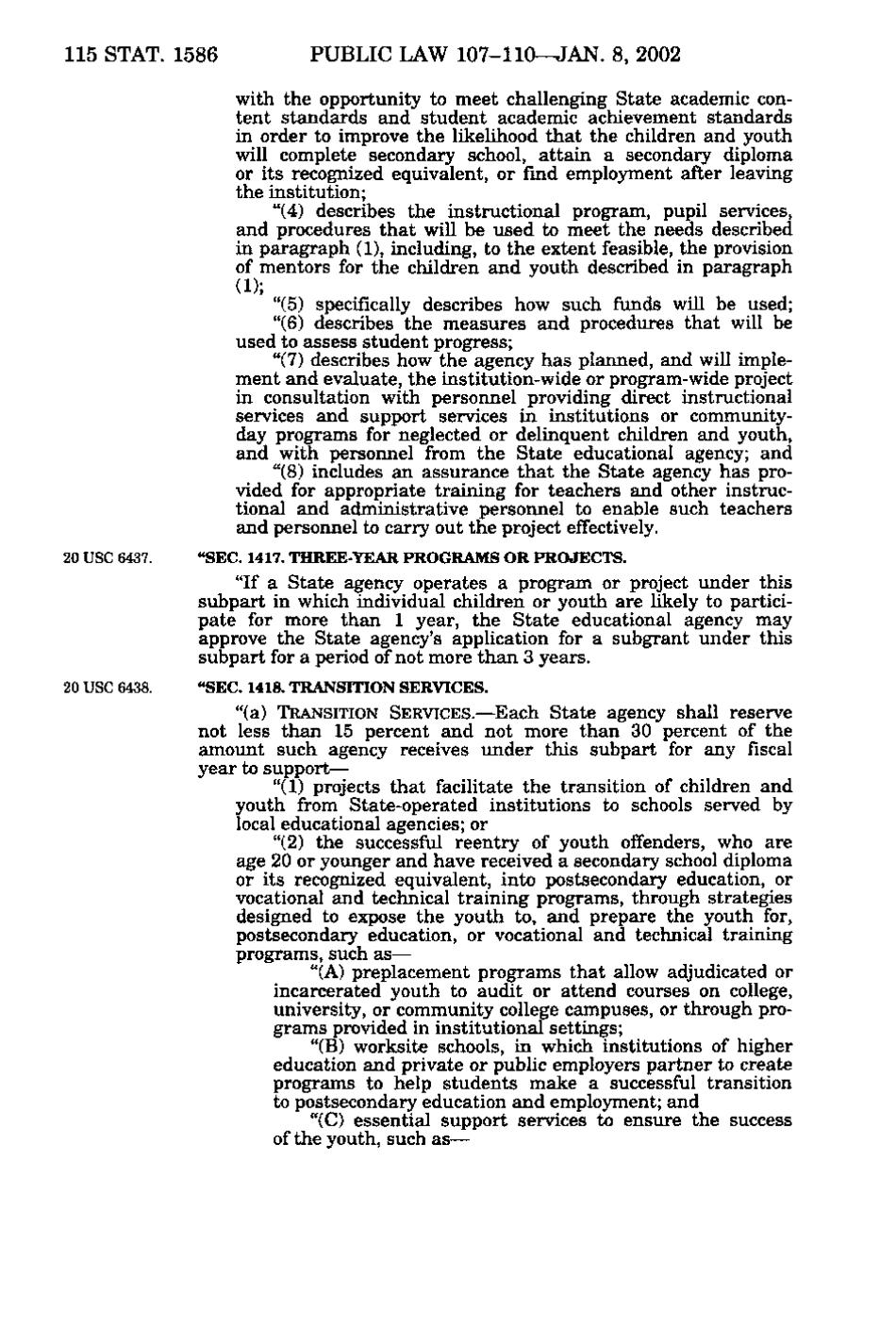115 STAT. 1586 PUBLIC LAW 107-110-^AN. 8, 2002 with the opportunity to meet challenging State academic content standards and student academic achievement standards in order to improve the likelihood that the children and youth will complete secondary school, attain a secondary diploma or its recognized equivalent, or find employment after leaving the institution; "(4) describes the instructional program, pupil services, and procedures that will be used to meet the needs described in paragraph (1), including, to the extent feasible, the provision of mentors for the children and youth described in paragraph (1); "(5) specifically describes how such funds will be used; "(6) describes the measures and procedures that will be used to assess student progress; "(7) describes how the agency has planned, and will implement and evaluate, the institution-wide or program-wide project in consultation with personnel providing direct instructional services and support services in institutions or community- day programs for neglected or delinquent children and youth, and with personnel from the State educational agency; and "(8) includes an assurance that the State agency has provided for appropriate training for teachers and other instructional and administrative personnel to enable such teachers and personnel to carry out the project effectively. 20 USC 6437. "SEC. 1417. THREE -YEAR PROGRAMS OR PROJECTS. "If a State agency operates a program or project under this subpart in which individual children or youth are likely to participate for more than 1 year, the State educational agency may approve the State agency's application for a subgrant under this subpart for a period of not more than 3 years. 20 USC 6438. "SEC. 1418. TRANSITION SERVICES. "(a) TRANSITION SERVICES. — Each State agency shall reserve not less than 15 percent and not more than 30 percent of the amount such agency receives under this subpart for any fiscal year to support— "(1) projects that facilitate the transition of children and youth from State-operated institutions to schools served by local educational agencies; or "(2) the successful reentry of youth offenders, who are age 20 or younger and have received a secondary school diploma or its recognized equivalent, into postsecondary education, or vocational and technical training programs, through strategies designed to expose the youth to, and prepare the youth for, postsecondary education, or vocational and technical training programs, such as— "(A) preplacement programs that allow adjudicated or incarcerated youth to audit or attend courses on college, university, or community college campuses, or through programs provided in institutional settings; "(B) worksite schools, in which institutions of higher education and private or public employers partner to create programs to help students make a successful transition to postsecondary education and employment; and "(C) essential support services to ensure the success of the youth, such as—
�
